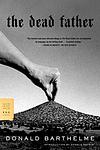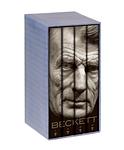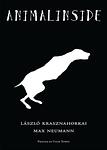The Greatest "Absurdist, Experimental, Fiction" Books Since 1970
Click to learn how this list is calculated.
This list represents a comprehensive and trusted collection of the greatest books. Developed through a specialized algorithm, it brings together 300 'best of' book lists to form a definitive guide to the world's most acclaimed books. For those interested in how these books are chosen, additional details can be found on the rankings page.
Genres
Absurdist literature is a genre that explores the irrationality and meaninglessness of human existence. It often features characters who are trapped in absurd situations and struggle to find purpose or understanding in a chaotic world. Absurdist books challenge traditional notions of plot, character development, and narrative structure, and often use humor and satire to critique societal norms and conventions. This genre is characterized by its philosophical and existential themes, and its rejection of traditional literary conventions.
The "Experimental" category of books is characterized by works that challenge traditional literary conventions and push the boundaries of form and content. These books often incorporate unconventional narrative structures, language, and themes, and may experiment with different mediums such as poetry, visual art, or multimedia. The goal of experimental literature is to create new and innovative ways of storytelling that challenge readers' expectations and expand the possibilities of what literature can be.
Countries
Date Range
Reading Statistics
Click the button below to see how many of these books you've read!
Download
If you're interested in downloading this list as a CSV file for use in a spreadsheet application, you can easily do so by clicking the button below. Please note that to ensure a manageable file size and faster download, the CSV will include details for only the first 500 books.
Download-
1. Franz Kafka: The Complete Stories by Franz Kafka
This collection of stories offers a comprehensive look at the work of a renowned author, known for his surreal and often unsettling depictions of modern life. The stories explore themes of existential anxiety, guilt, and absurdity, often through narratives in which ordinary people face extraordinary, inexplicable circumstances. The collection showcases the author's unique style and his profound influence on 20th-century literature.
-
2. Correction by Thomas Bernhard
"Correction" is a complex narrative revolving around the life of a man named Roithamer, a genius obsessed with constructing an architectural masterpiece, the Cone, in the center of the Kobernausser forest. The story is told through the perspective of his friend who is reading Roithamer's notes after his suicide. The novel explores themes of obsession, isolation, and the pursuit of perfection, while also delving into the protagonist's troubled relationships with his family and society.
-
3. The Unconsoled by Kazuo Ishiguro
The book follows a renowned pianist who arrives in a Central European city to give a concert. However, his time there becomes increasingly surreal and disjointed as he is pulled in different directions by the demands of the locals, his own past, and his responsibilities. The narrative explores themes of memory, time, and self-delusion, creating a dream-like atmosphere that blurs the lines between reality and illusion.
-
4. Sixty Stories by Donald Barthelme
"Sixty Stories" is a collection of short narratives that use unconventional, experimental structures to explore a range of themes. The book is known for its absurdist and postmodern style, and the stories often feature elements of parody, surrealism, and satire. The tales cover a wide array of topics, including art, literature, philosophy, and the human condition, all presented with a unique blend of humor, wit, and intellectual depth.
-
5. Concrete by Thomas Bernhard
The book is a darkly introspective narrative that delves into the mind of a reclusive, obsessive intellectual who is struggling to complete his scholarly work on the composer Mendelssohn. As he grapples with his own ailments and the perceived mediocrity of his surroundings, the protagonist's stream-of-consciousness monologue reveals his deep-seated anxieties, self-loathing, and profound isolation. The narrative is a relentless examination of the protagonist's psyche, showcasing his critical view of society and his own personal relationships, which are fraught with tension and dysfunction. Through this, the novel explores themes of artistic creation, intellectual elitism, and the suffocating nature of expectations and familial obligations.
-
6. The Box Man by Kobo Abé
"The Box Man" is a surreal narrative about a man who chooses to live as a homeless individual, inside a box, in Tokyo. The protagonist, a former doctor, narrates his experiences and observations from within the box, and the narrative often blurs the line between reality and hallucination. The book is a philosophical exploration of identity, anonymity, and the nature of existence, challenging the reader's perception of what it means to be an individual in society.
-
7. The Dead Father by Donald Barthelme
The book is a surreal, postmodern narrative following a group of characters as they drag the physical manifestation of their dead father across a variety of landscapes. The characters grapple with their relationships to the father figure, exploring themes of authority, control, and the nature of storytelling itself. The novel is known for its experimental style, blending a range of literary techniques and genres to create a unique, fragmented narrative.
-
8. The Clay Machine-gun by Victor Pelevin
"The Clay Machine-gun" is a surreal and complex novel that explores the nature of reality and illusion. The story is set in post-Soviet Russia and follows a protagonist who has multiple identities, including a poet in 19th-century Russia, a 20th-century psychiatric patient, and a 21st-century advertising executive. The narrative moves between these identities and realities, blurring the lines between them and creating a layered and philosophical exploration of Russian society, identity, and the human psyche.
-
9. The Breast by Philip Roth
The book is a surreal and darkly comic novella that explores the bizarre transformation of a college professor who inexplicably turns into a giant breast. This metamorphosis leads him to confront a range of human experiences and emotions, including sexuality, identity, and the absurdity of existence. As he grapples with his new form, the protagonist reflects on his past life and relationships, while also dealing with the practical and philosophical implications of his current condition. The narrative delves into themes of alienation and the human condition, all while maintaining a satirical tone that challenges the reader's sense of normalcy and the boundaries of the self.
-
10. Epepe by Ferenc Karinthy
The book revolves around a linguist who finds himself inexplicably trapped in a nightmarish city where he cannot understand the language or communicate with the inhabitants. Despite his expertise in languages, the protagonist's skills are rendered useless in this alien environment, leading to a series of Kafkaesque encounters as he desperately tries to make sense of his surroundings and find a way back home. His isolation is compounded by the city's indifferent bureaucracy and the strange, often absurd, customs of its citizens, turning his ordeal into an existential struggle for identity and understanding in the face of an incomprehensible world.
-
11. A School For Fools by Sasha Sokolov
The novel presents a fragmented and surreal narrative that delves into the mind of a young boy with a learning disability, attending a special school in the Soviet Union. Through a stream-of-consciousness style, the book explores the boy's experiences and perceptions, blending reality with fantasy, and time with memory. The protagonist's inner world is rich with poetic language and vivid imagery, reflecting his struggle to find his place in a society that marginalizes those who are different. The narrative structure defies conventional storytelling, offering a unique and challenging perspective on the nature of sanity, the power of institutions, and the complexity of the human psyche.
-
12. The Moscoviad by Yuri Andrukhovych
"The Moscoviad" is a satirical novel that follows the journey of a group of Ukrainian intellectuals as they embark on a chaotic and absurd trip to Moscow. Through a series of hilarious and bizarre encounters, the author explores the complex relationship between Ukraine and Russia, while also delving into the themes of identity, history, and cultural clashes. With its sharp wit and biting commentary, the novel offers a unique perspective on the post-Soviet era and the tensions between the two neighboring countries.
-
13. Double Or Nothing by Raymond Federman
"Double Or Nothing" is an experimental novel that explores the life of a young man trying to pen a novel about his experiences as a Holocaust survivor. The book is unique in its format, with the protagonist's thoughts, ideas, and narrative presented in various graphic and typographical forms. The narrative is nonlinear and fragmented, reflecting the protagonist's struggle to make sense of his traumatic past and his attempts to express it through writing.
-
14. The Loser by Thomas Bernhard
"The Loser" is a philosophical novel that revolves around the complex relationship between three friends who are all piano virtuosos. The narrative is driven by the protagonist's obsession with his friend's suicide, which he believes was triggered by the realization that they could never surpass the genius of their third friend. The book delves into the protagonist's psyche as he grapples with themes of talent, ambition, failure, and the destructive power of comparison.
-
15. Take It Or Leave It by Raymond Federman
"Take It Or Leave It" is a unique narrative that blends fiction and autobiography. The story is about a French-American man who is drafted into the U.S. Army during the Korean War. The narrative is non-linear and fragmented, often digressing into side stories and anecdotes. The protagonist shares his experiences of growing up in France during World War II, his immigration to the United States, and his experiences in the army. The book plays with the conventions of storytelling and is known for its postmodern style.
-
16. The Complete Dramatic Works Of Samuel Beckett by Samuel Beckett
This book is a comprehensive collection of Samuel Beckett's dramatic works, showcasing his unique style and exploration of human existence. From the iconic "Waiting for Godot" to lesser-known plays, Beckett's works delve into themes of despair, absurdity, and the human condition. With his minimalist approach and masterful use of language, Beckett's plays continue to captivate and challenge readers, offering a profound reflection on the complexities of life.
-
17. Mulligan Stew by Gilbert Sorrentino
"Mulligan Stew" is a postmodern novel that centers around an unsuccessful writer, Antony Lamont, who is attempting to pen a detective novel. The book is filled with literary and cultural references, parodying various genres and styles. It also features characters from his failed novel who are aware of their fictional status and openly rebel against their creator. The narrative is non-linear and includes letters, lists, interviews, and even a short play, creating a complex and satirical exploration of the writing process.
-
18. Animalinside by László Krasznahorkai, Max Neumann
"Animalinside" is a haunting and surreal novella that delves into the mind of a narrator who becomes consumed by an animalistic alter ego. As the protagonist's thoughts and actions blur the line between human and animal, the narrative takes on a dark and disorienting tone, exploring themes of identity, violence, and the primal instincts that lie within us all. Through the collaboration of Krasznahorkai's mesmerizing prose and Neumann's striking illustrations, "Animalinside" offers a mesmerizing and thought-provoking exploration of the human psyche.
-
19. The Age of Wire and String by Ben Marcus
This book is a collection of short, interconnected stories that challenges the conventions of narrative and language. The stories are set in an alternative America and are filled with surreal and bizarre elements, often defying logic and meaning. The author uses a unique, poetic language to describe this world, creating a strange and disorienting effect. The book is divided into different sections, each dealing with a different aspect of this world, such as food, sleep, or animals. It's a challenging and thought-provoking read that pushes the boundaries of fiction.
-
20. Samedi The Deafness by Jesse Ball
The novel revolves around a man who, after witnessing a murder, is drawn into a surreal conspiracy at a mysterious institution where the residents are engaged in a bizarre form of psychological warfare. The protagonist must navigate through a labyrinth of lies and cryptic rules, trying to uncover the truth while grappling with the concept of "samedi" — a sort of collective madness or deception. As he delves deeper into this enigmatic world, he confronts the challenges of communication, the nature of truth, and the power of societal constructs, all while the boundaries between reality and delusion blur.
Reading Statistics
Click the button below to see how many of these books you've read!
Download
If you're interested in downloading this list as a CSV file for use in a spreadsheet application, you can easily do so by clicking the button below. Please note that to ensure a manageable file size and faster download, the CSV will include details for only the first 500 books.
Download


















